
HOW TO SAFEGUARD YOUR REAL ESTATE PROPERTY FROM DEMOLITION BY THE GOVERNMENT
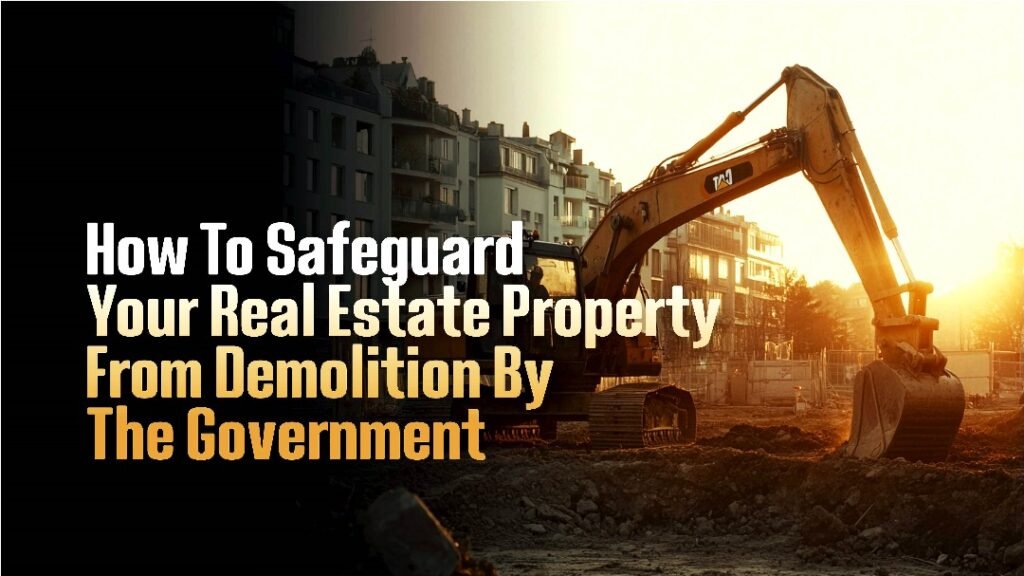
HOW TO SAFEGUARD YOUR REAL ESTATE PROPERTY FROM DEMOLITION BY THE GOVERNMENT
Between October and December 2023, Lagos, Nigeria’s commercial capital, home to over 20 million people, witnessed a wave of property demolitions that affected numerous homeowners. For many, this period was unforgettable—yet for all the wrong reasons. Properties were razed to the ground by government bulldozers, leaving homeowners devastated. Sadly, such demolitions are not limited to Lagos but are becoming an increasingly frequent occurrence across the country.
The sight of bulldozers tearing down homes is a distressing reality for many Nigerians. When these homes are reduced to rubble, the consequences are profound: families are displaced, communities are fractured, and lives are upended. As these demolitions occur, the government often cites various reasons, but the stories of those affected paint a more complex picture.
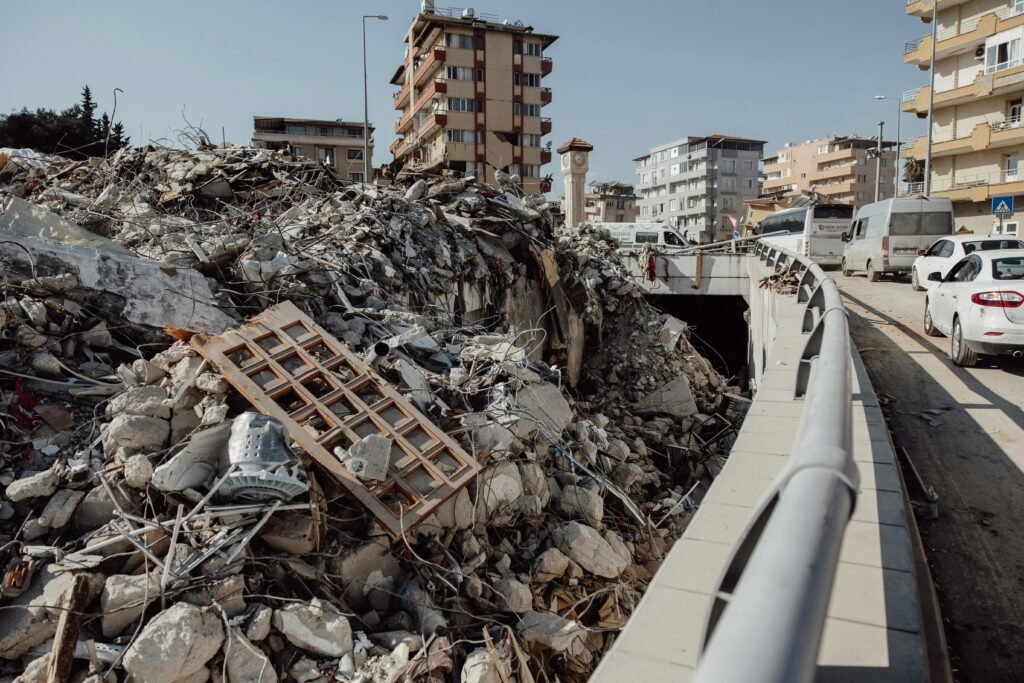
The Human Impact of Demolitions
Take the case of Mr. Adewale, a 59-year-old civil servant from Lagos. After four years of hard work and taking out multiple cooperative loans, Mr. Adewale finally completed his dream home—a three-bedroom apartment built along the waterway. This home represented stability for him and his family, particularly as he neared retirement.
Unfortunately, the government’s decision to clear structures along the waterways to mitigate flooding during the rainy season turned Mr. Adewale’s dream into a nightmare. Despite several pleas for leniency, the bulldozers came, and in a matter of days, his home was reduced to rubble. Mr. Adewale’s attempt to seek compensation was thwarted when he could not present a valid Certificate of Occupancy (CofO) to support his case in court.
In a somewhat different scenario, the Abdullahi family in Kano faced a similar fate. Their ancient one-story building, home to sixteen rooms and several generations of memories, was demolished after the government claimed it violated planning regulations. Despite their protests, the Abdullahi family’s home was demolished. However, after a lengthy legal battle, they were compensated by the government, having been able to present a valid C of O for their land.
These examples highlight the devastation demolitions can cause and underscore the importance of proper documentation and legal compliance when it comes to property ownership.
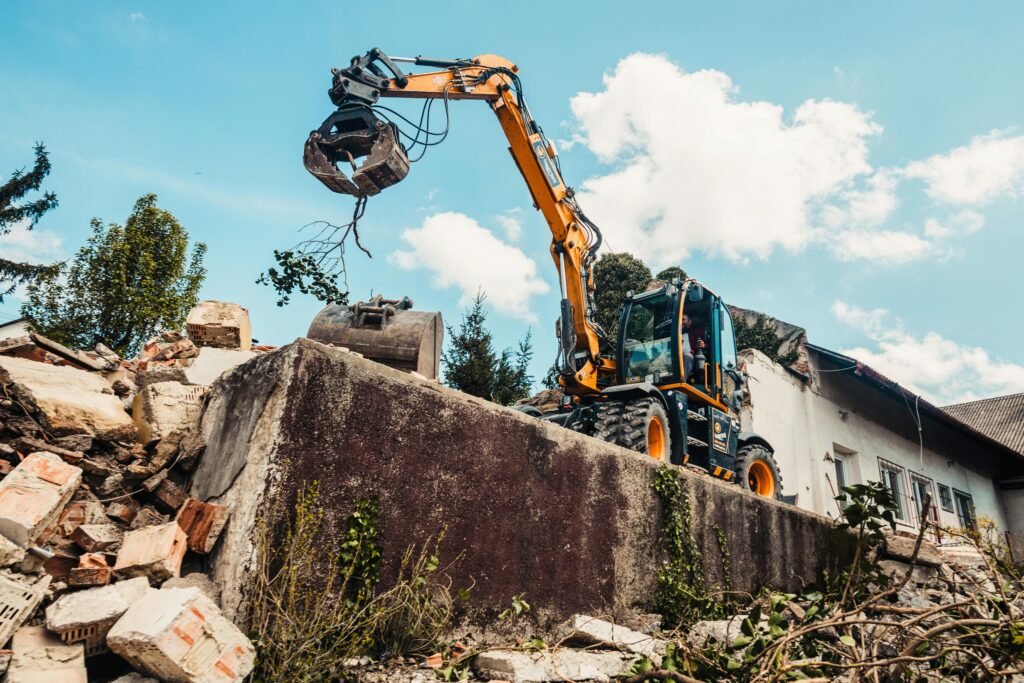
Reasons Behind Government Demolitions
While the stories of individual homeowners are heartbreaking, government demolitions are often carried out to address broader issues affecting public welfare, health, and safety. The following are some common reasons why the government may decide to demolish properties:
1. To address Environmental Concerns (Flooding and Erosion): In Lagos, many demolitions occur near canals, waterways, and floodplains. According to the Nigerian Meteorological Agency (NiMet), Nigeria’s rainfall patterns have become more erratic in recent years, with heavy downpours leading to flooding in major cities like Lagos. For example, the 2018 rainy season saw floods displace thousands and claim over 100 lives in the country. To mitigate flooding and ensure the free flow of water, the government often demolishes structures built in environmentally sensitive areas.
2. Urban Renewal and Redevelopment: Urban renewal is another common reason for demolition. In Abuja, for example, the government has undertaken large-scale redevelopment projects aimed at modernizing the city. This often involves clearing dilapidated buildings to make space for new commercial developments, residential towers, and public infrastructure. As reported by the Federal Capital Development Authority (FCDA), these projects are designed to improve the quality of life for residents and attract investment.
3. Public Safety and Health: Buildings that are structurally unsafe, damaged by natural disasters, or contaminated by environmental hazards may be demolished to protect public safety. For instance, after the 2017 collapse of a building in Lagos that killed over 50 people, the government increased scrutiny of old and unsafe structures. If a building is deemed hazardous to its occupants or nearby properties, it may be demolished to prevent accidents and loss of life.
4. Government Land Use and Reclamation: Some properties are built on land reserved for government use, such as public parks, roadways, or future infrastructure projects. In cases where individuals have built on these lands without proper authorization, the government can reclaim the land and demolish the properties. According to a report by the Nigerian Land Use Act (1978), any building constructed on land designated for government use can be forcibly removed without compensation, unless the land is legally acquired.
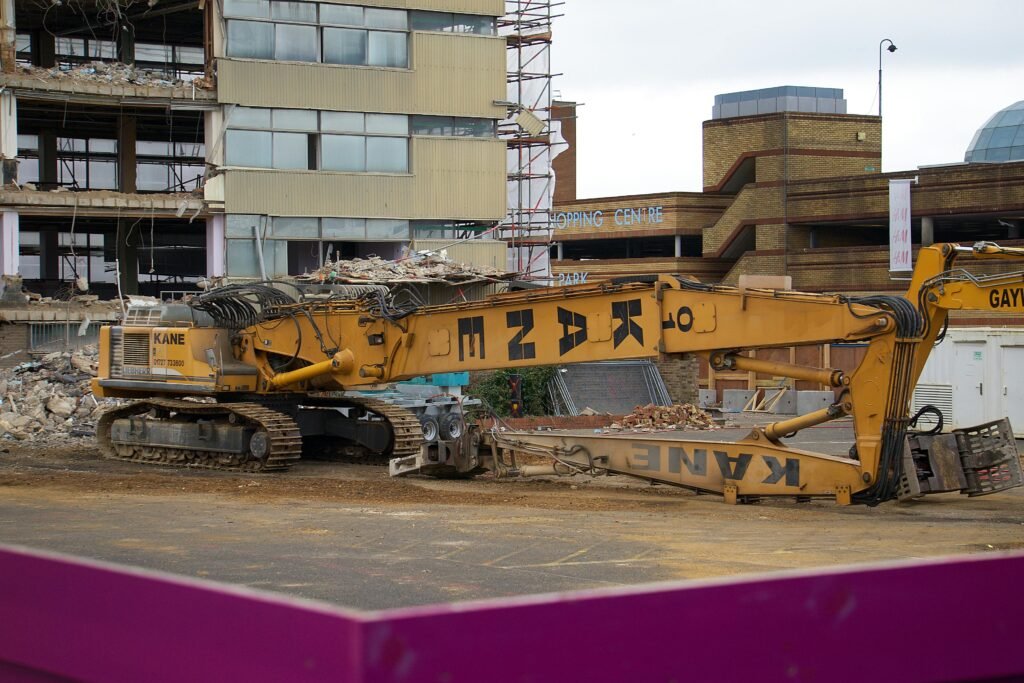
Legal Protection and How to Safeguard Your Property
While government demolitions may be necessary for the greater public good, homeowners can take steps to protect their properties from such risks. Below are some key strategies to ensure your property remains safe from demolition:
1. Obtain Correct and Complete Land Documentation: One of the most effective ways to protect your property is to ensure you have legally recognized ownership. This includes obtaining crucial documents like the Certificate of Occupancy (CofO), Governor’s Consent, and Deed of Assignment. These documents are essential for confirming your legal right to the property. According to the National Bureau of Statistics, over 30% of property disputes in Nigeria are related to issues surrounding land ownership and documentation. Having the right documents is your best defense against government demolition, as it gives you the legal standing to seek compensation if necessary.
2. Buy properties from trusted professionals and companies: When you buy your property from trusted companies like PWAN Stars, you have peace of mind knowing that your property is safe from potential demolition. Reputable companies such as PWAN Stars provide solid guidance through purchasing process while ensuring compliance with regulatory standards. You can significantly reduce the risk of investing in properties that are prone to demolition when you buy from trusted sources.
3. Obtain Building Approvals and Comply with Building Regulations: Many demolitions occur when properties are built without the appropriate approvals. In Lagos, for example, numerous homes along the waterways were built illegally, bypassing regulatory agencies. As stated by the Lagos State Ministry of Urban Development, any construction near a waterway or floodplain without the necessary permits is subject to demolition. To avoid this, always ensure your construction is authorized by the relevant local agencies, and your building plans meet all regulatory requirements for size, setback, height, and safety.
4. Avoid Encroachment on Public or Reserved Land: Respect property boundaries and refrain from building on land designated for government use or areas of environmental importance. Building on roads, water reserves, or floodplains can result in your property being demolished when the government decides to reclaim or redevelop these areas. The Nigerian Urban and Regional Planning Law (2010) emphasizes the importance of adhering to zoning laws and regulations to prevent encroachment on protected land.
5. Regularly Maintain Your Property: Buildings that are poorly maintained are more likely to attract government attention, especially if they pose a safety risk. In Nigeria, poorly maintained properties are often demolished for public safety reasons. For example, after several collapsed buildings in Lagos in 2017 and 2018, the government increased enforcement of building maintenance regulations. Regularly inspect and maintain your property to avoid safety concerns that could lead to demolition.
6. Monitor Activities on Your Property: It’s crucial to ensure that tenants or residents on your property adhere to the law. Properties that are used for illegal activities, such as kidnapping or illegal trade, can be targeted for demolition. According to a 2020 report by the Nigerian Police Force, properties linked to criminal activities are sometimes demolished as part of efforts to curb crime. Be vigilant and ensure your property is not being used for illicit purposes.
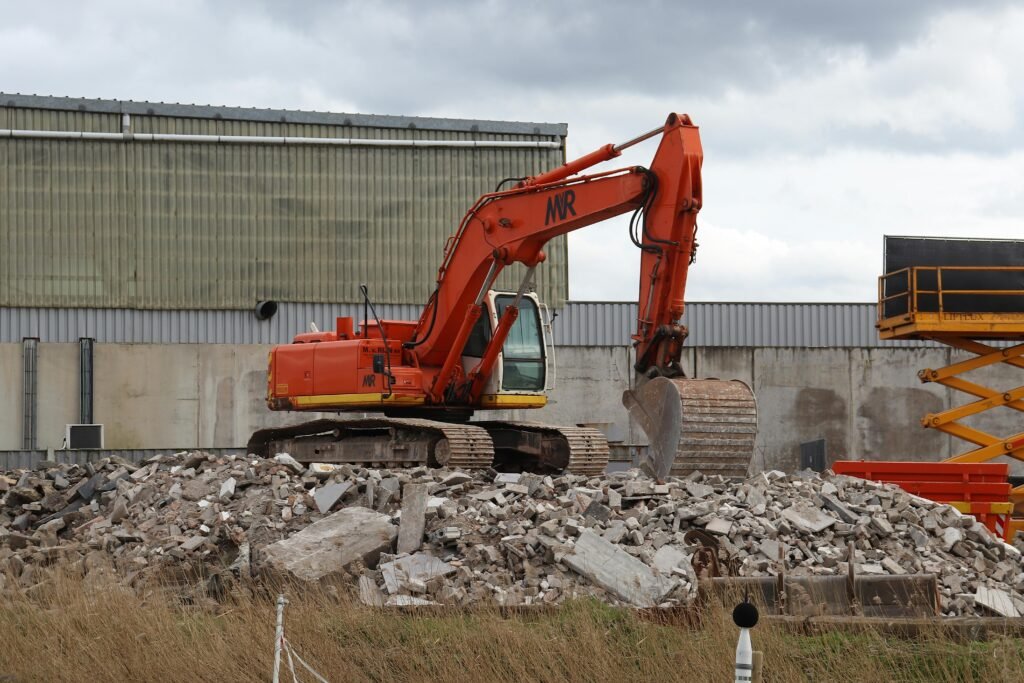
Role of Community and Advocacy in Safeguarding Your Property
The role of community and advocacy in safeguarding members’ properties against demolition in the State is critical, especially given the city’s rapid urbanization and development pressures. Their role include:
- Raising Awareness
Communities can mobilize to raise awareness about impending demolitions, which can affect entire neighborhoods. Advocacy groups, community leaders, and local organizations can educate residents about their rights, the legal process surrounding demolitions, and any potential compensation or resettlement options. By informing the community, they can better organize and resist unfair demolitions.
- Legal Advocacy
Legal advocacy is a powerful tool in the fight against unwarranted demolitions. Lawyers and advocacy groups work alongside affected residents to challenge unlawful demolition orders in court, especially when properties are threatened without proper compensation or legal procedure. These groups can ensure that demolitions are done according to the law and that residents are fairly compensated or resettled if necessary,
- Community Mobilization and Protests
In the face of demolition threats, communities can come together to resist and protest the destruction of their properties. Organizing protests, petitions, and community meetings helps raise public awareness and garners support from other sectors, including the media, human rights organizations, and local government representatives. Collective action sends a strong message that the community is united in protecting their homes.
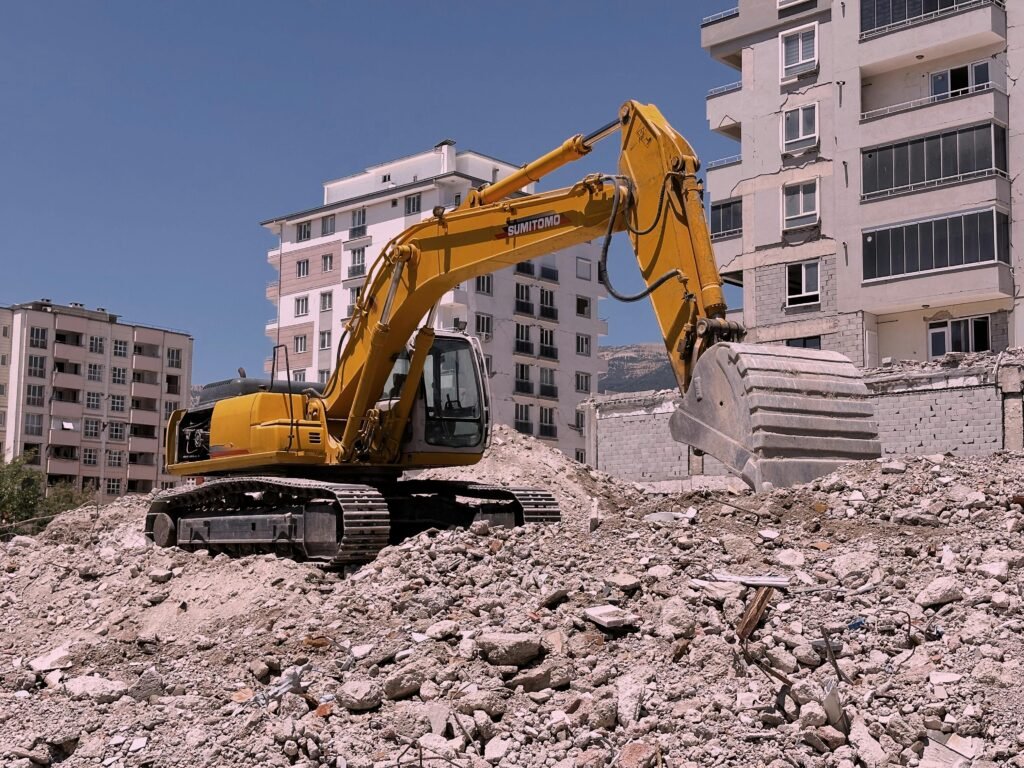
Conclusion
In conclusion, while government demolitions are often driven by the need to address environmental, safety, and urban development challenges, homeowners can take proactive steps to protect their properties. Ensuring that your land documentation is in order, complying with building regulations, avoiding encroachment on public land, and maintaining your property are key strategies to safeguarding your real estate investment.
If you are uncertain about the legal requirements for your property or need advice on acquisition, reach out to PWAN Stars for expert guidance on navigating the complexities of property ownership in Nigeria. By staying informed and compliant, you can protect your property and prevent the distressing experience of government demolition.








